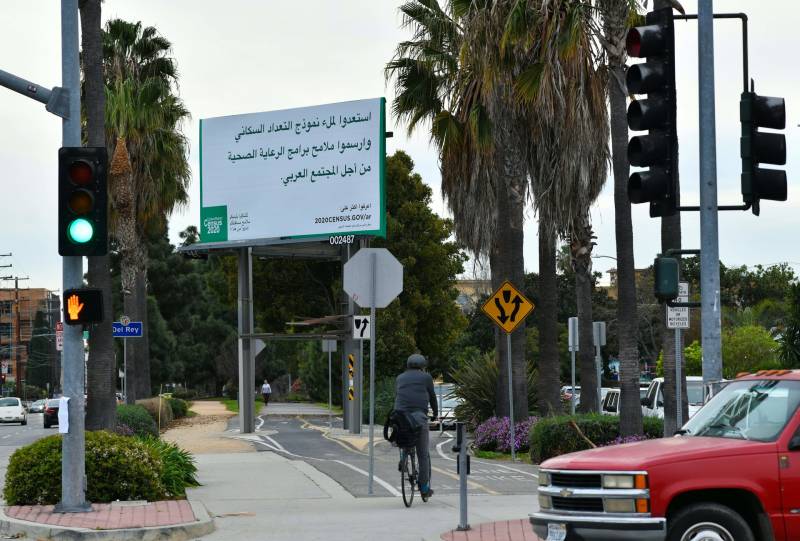Ditas Katague, director of the California census office, said the campaign’s goal was to preserve California’s political clout.
“It’s power, it’s money and it’s data. Those are the three reasons why we invest,” Katague said.
One less seat might not seem like a big deal for the state with the most representatives, but it would mean fewer electoral votes in a presidential election.
According to Eric McGhee, a senior fellow with the Public Policy Institute of California, the state’s problems might also get less attention in Congress, like wildfires, for example.
“You could imagine the desire to get federal money to help with those wildfires would unite the [California] caucus,” McGhee said. “They might be able to speak with one voice regardless whether they’re Democrats or Republicans.”
The big spending on census outreach was meant to ensure that California’s hard-to-count residents, like immigrants, children and renters, don’t get missed by the census. But McGhee expects that reaching those people will now be a whole lot tougher with the coronavirus pandemic.
“We could end up having a worse count than other states, given the vulnerable populations that we have here,” McGhee said.
If a seat is lost, McGhee and other political analysts predict that it will be taken away from the Los Angeles County area. According to a report from Claremont McKenna College, the 27th congressional district in the San Gabriel Valley is most at risk of losing a representative.
The mostly suburban area in Eastern Los Angeles has experienced its own slowdown in population in the last decade. And since each district is supposed to have the same number of constituents, the region might not be able to justify its representation.
But removing a district is tricky work, and the 27th congressional district is 40% Asian American, one of the highest concentrations in the county. If that constituency is broken up, it would mean Asian Americans could have less of a voice in Congress.
U.S. Rep. Judy Chu, who currently serves the 27th, became the first Chinese American woman elected to Congress in 2009. Chu believes her constituents should not be split into surrounding districts and cites the state constitution and Voting Rights Act, which are supposed to protect communities with common interests and prevent racial discrimination.
“I think there are very special issues that pertain to the San Gabriel Valley,” Chu said. “That’s why it’s important for us to have our own representative and our own voice.”

